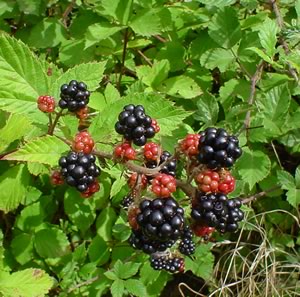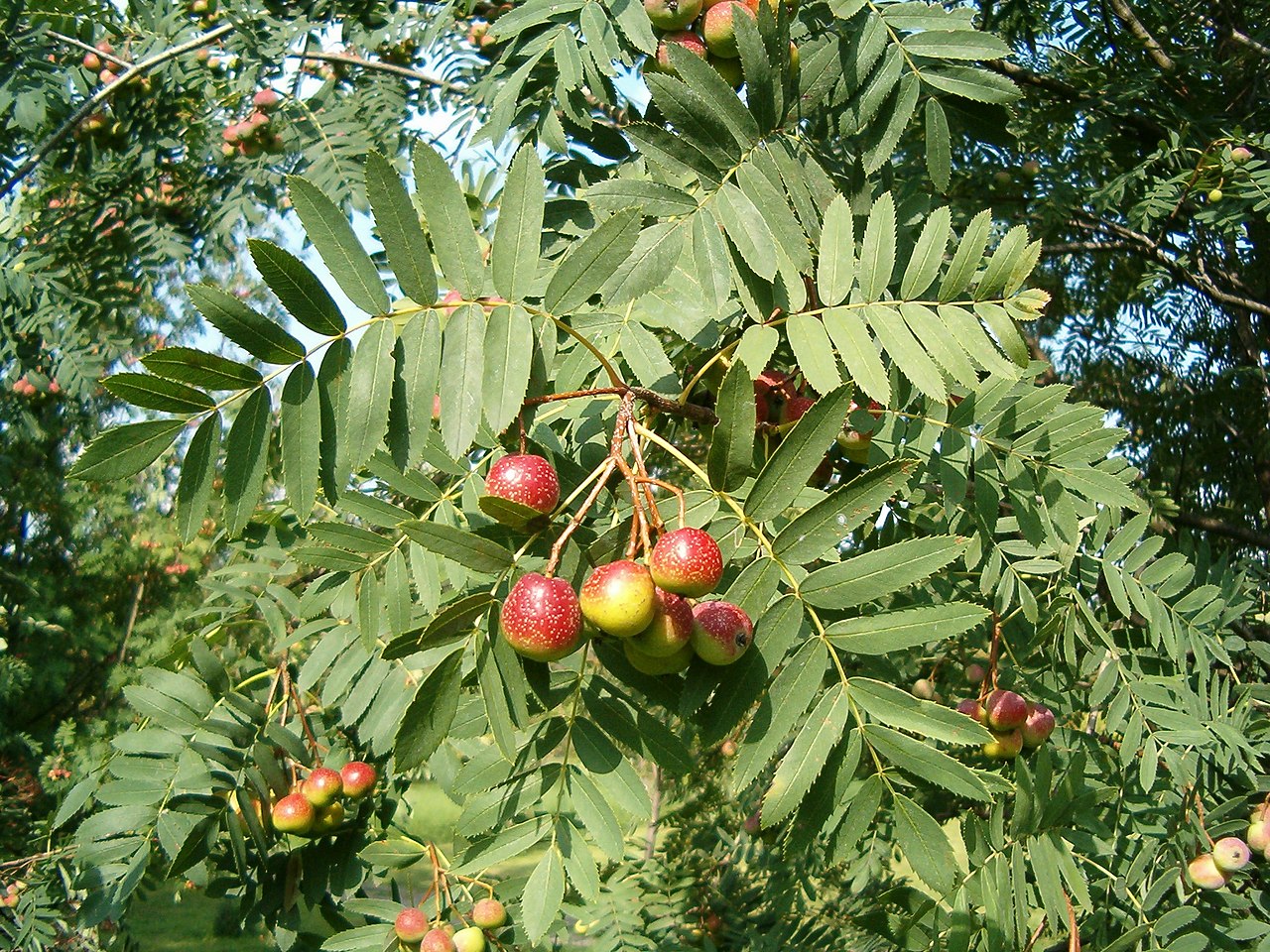 |
| Blackberries |
Contrarily to what some linguists think, Galician-Portuguese silva, silveira (collective) 'bramble (Rubus)' is unrelated to the homonymous Latin silva 'forest' (which regularly gives Romance selva), but it's cognate to Leonese silba 'service berry', silbar, silbal (collective) 'service tree (Sorbus domestica)'2.
 |
| Service berries |
Although these forms show the typical IE ablaut e ~ o6, we also can find variants with /u/ vocalism: Leonese (Liébana) surba 'service berry', surbu (collective) 'service tree' and regional Spanish (Álava, Bureba, High Rioja) zurba, zurbia 'service berry', zurbal, zurbial, surbial (collective) 'service tree'.
________________________________________________________
1 The shift -lb- > -lv- is regular in Portuguese.
2 J. Oria de Rueda et al. (2006): Botánica forestal del género Sorbus en España, in Investigación Agraria. Sistema y recursos forestales, vol. 15, nº 1, p. 166-186.
2 J. Oria de Rueda et al. (2006): Botánica forestal del género Sorbus en España, in Investigación Agraria. Sistema y recursos forestales, vol. 15, nº 1, p. 166-186.
3 The proposed connection (Pedersen) with Celtic *swerwo- 'bitter' (Old Irish serb, Middle Welsh chwerw) can be ruled out.
4 The forms serbo, jerbo, selbo, jelbo are the product of a contamination with sorbo.
5 M. Vasmer (1955): Russisches Etymologisches Wörterbuch, p. 697.
6 In fact, some Indo-Europeanists
reconstruct a protoform *serbh-
~ *sorbh-.4 The forms serbo, jerbo, selbo, jelbo are the product of a contamination with sorbo.
5 M. Vasmer (1955): Russisches Etymologisches Wörterbuch, p. 697.

